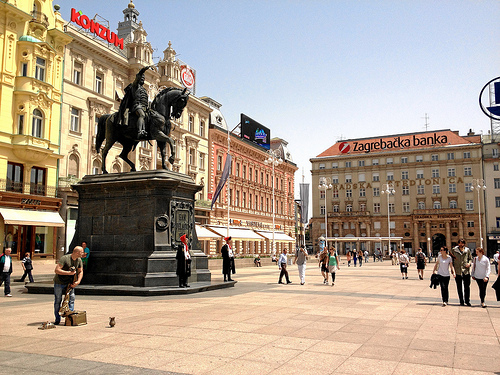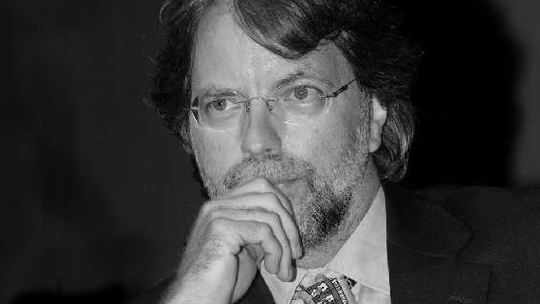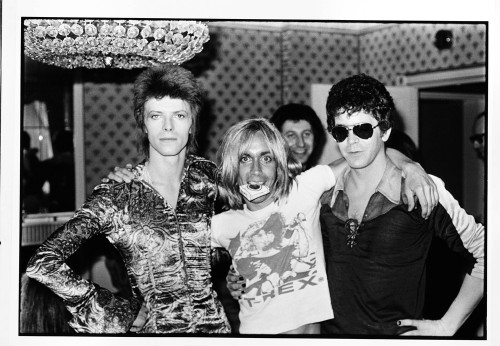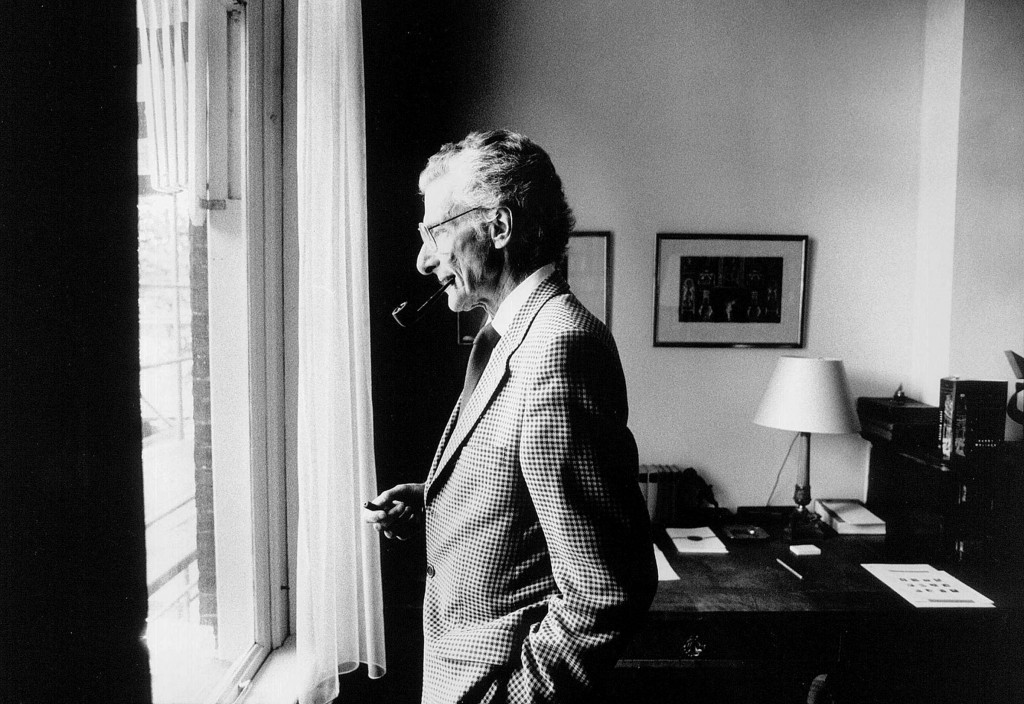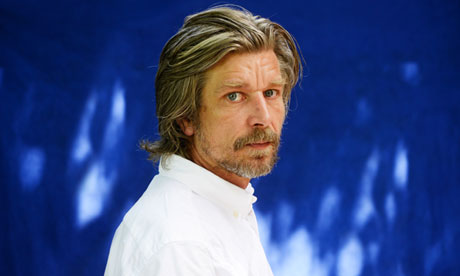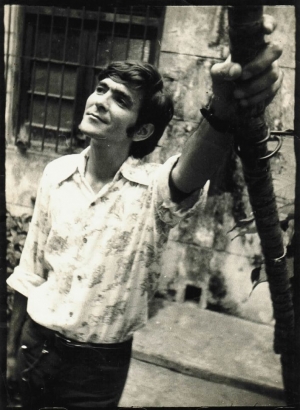Albert Camus continues to prompt discussion, even in his 100th year. The literary Internet commemorated the passing of Camus’ centenary this week: in The New York Review of Books, Susan Sontag suggests that a literary Camus is “the ideal husband of contemporary letters,” the Irish Times examines the world as Camus saw it, and The New Republic re-releases a review from 1948 in which reviewer Nicola Charomonte posits that Albert Camus’ thinks that life is meaningless. But in Camus’ native Algeria and France? Seems as if the anniversary has passed without much hullabaloo. Tant pis.
Weekly News Roundup, 11th November 2013: Camus, Tagore, and more

A look at some of the most important literary news of the past week
A new story by Haruki Murakami was published in the October 28th issue of The New Yorker. The story is called “Samsa in Love” and is translated by Ted Goosen, who often translates Murakami’s Canadian releases. The story concerns someone who wakes up as a man named Gregor Samsa.
“Next stop… Ban Josip Jelačić Square”.
I stepped out of the number 17 tram—overcrowded as usual—into what would prove one of the most enjoyable and illuminating Friday mornings I have had in a long while. I made my way toward my destination past the square’s two most familiar inhabitants—the statue of Ban Jelačić on horseback, and the ubiquitous Golden Mummy, a living statue street performer who has become a true symbol of Zagreb’s main square.
The latest winner of the Neustadt Prize, Mozambican writer Mia Couto, stands as one of the preeminent writers working in Portuguese today. Couto, 58, counts poems, short stories, novels, and essays among his output of 25 books. The Neustadt honor comes on the heels of the 2013 Prêmio Camões, awarded to Couto in May. Much as the Neustadt is often called the “American Nobel,” the Camões is likewise nicknamed the Portuguese-language Nobel.
READ MORE…
Weekly News Round-Up, 3rd November 2013: Amazon, Neustadt, and PEN Myanmar

International literary news
October 28–November 3, 2013
It’s a tale of two Amazons. The Internet behemoth takes consistent steps in the right direction for literature’s longevity: the Kindle is an admittedly practical e-reader, and Kindle Direct Publishing makes it stupidly easy for emerging writers to make things happen. Even at Asymptote, we begrudgingly accept Amazon’s eminence as its imprint AmazonCrossing published the most literature in translation in 2012, thereby besting many publishing houses we’d feel far more comfortable endorsing. However, the mega-corporation’s ubiquity makes independent bibliophiles (understandably) uneasy. This week’s developments underline the lit community’s love-hate sentiment: on one hand, Amazon Publishing has launched Day One, a digital literary magazine showcasing emerging authors and poets. Given its gargantuan scope (and an annual subscription cost of just $9.99!) the corporation’s foray into literary journalism might just rekindle the tradition in a digital age (pun intended). In France, however, the government staunchly defends its independent bookstores by restricting Amazon’s discount pricing.
In the movie version of The Perks of Being a Wallflower, the gorgeous, tortured teenagers who’ve been guiding the film’s young protagonist – another gorgeous, tortured teenager – in matters of love, identity, and music, decide to take the boy on a special trip through a Pittsburgh tunnel. A song comes on the radio, and the girl climbs out through the back window to emerge standing on the back of the flatbed truck in Leo’s “king of the world” pose at the end of the tunnel. Whereas the book can leave the actual song unnamed and universal, the film has to be specific and actually play the song. In a rare false note for the otherwise entirely truthy film, finding the mysterious song that prompted this liberating escapade becomes a matter of serious concern for our serious young protagonist, even though everybody born before 1990 will have immediately guessed it: David Bowie’s deathlessly cool “Heroes”. READ MORE…
On 30th October 2010, the great Dutch author Harry Mulisch passed away—after Reve and Hermans, the last of the ‘great three’ of Dutch postwar literature to leave us. The first time I read Mulisch—it was his great novel The Discovery of Heaven—must have been in late 2010; I remember reading the biographical note in the front of the book, in which he was alive and well, only to have this new-found friend suddenly snatched away from me by the remorseless up-to-dateness of Wikipedia. Wishful memory records that I had in fact started reading The Discovery of Heaven the very day Mulisch died. READ MORE…
There is a phrase among the earliest in Édouard Levé’s Autoportrait that has remained with me: “When I look at a strawberry, I think of a tongue.” Now, when I look at a strawberry, I think of “When I look at a strawberry, I think of a tongue.” There was a primacy to it, the words became a memory akin to a first kiss or ocean sighting—they became an event, a thing that happened to me. When I read, that feeling is what I look for. To be struck by something, to turn the corner and bump into something beautiful. Sometimes, I find something better.
Paris / worldwide. One exciting piece of news this week is the publication of a new installment of a diminutive Gaulish adventurer’s globe-trotting escapades. Published last Thursday in France, Astérix chez les Pictes also appeared on the very same day in twenty-five languages, which in itself is cause for celebration. Along with the usual suspects (English, Spanish, German, Italian, Dutch) it’s good to see a fair slew of minority languages too. Readers on the Iberian peninsula have been particularly lucky, with no fewer than six editions catering to the various language communities there—Portuguese and Castilian, of course, but also Asturian, Basque, Catalan, and Galician. READ MORE…
This Monday, UNESCO unveiled Krakow as its newest City of Literature, after Edinburgh, Melbourne, Iowa City, Dublin, Reykjavík, and Norwich. The announcement comes after a three-year wait; in its 2010 application (all 68 pages available for download here), Krakow is recommended as “a city of Nobel Prize winners.”
READ MORE…
It was thanks to a phenomenon lying somewhere between chance and merit that I ended up attending the Frankfurt Book Fair. In mid-June I signed a contract for the publication of my translation of Josef Winkler’s When the Time Comes (this is a plug, but not a shameless one). Shortly thereafter I came to Berlin. Among other things, I had hoped to meet Dr. Petra Hardt, the foreign rights directress from Suhrkamp, who had been far more encouraging than one would expect from a person of her stature when I wrote her spontaneously two years back asking to translate a Büchner Prize-winning house author from one of the world’s most redoubtable publishing houses. At the lunch, attended as well by her charming colleague Nora Mercurio and Rainer J. Hanshe from Contra Mundum Press, I was asked whether I would be going to Frankfurt. Luckily the facial expression corresponding to the thought I’m still deciding is not very different from the one for I wonder what I’m supposed to say. “I’m not sure yet,” I said, playing it cool, and Petra said that if I decided to, I should come to Suhrkamp’s party. READ MORE…
Taking license with Ray Bradbury
If you ever pass through Citrus Park, I recommend that you not enter Miss Roberta Donovan’s bar. Keep going, at full speed, and try not to listen to the siren’s song of the women tattooed on that enormous madam. I had the bad luck of stopping in Citrus because my car broke down there. The radiator, the spark plugs, who knows what went wrong with my old ’69 Mazda. Today it’s gone forever in the sands of that ghost town.
Because, gentlemen, Citrus Park is a ghostly town. There are no garages, no markets, no pharmacies, no cafés: nothing. One glance is enough to understand that it’s completely uninhabited, perhaps due to those hurricanes in the early part of the century that beat the Florida coast with unusual fury. The houses are in ruins, the streets are made of white sand, and millions of giant red ants crawl over everything in search of scarce shrubs found around the periphery. They’re enormous ants, perhaps the world’s largest, and they attack humans, leaving enormous terribly itchy welts. READ MORE…
DISPATCH: International Translation Day, London, 30th September 2013
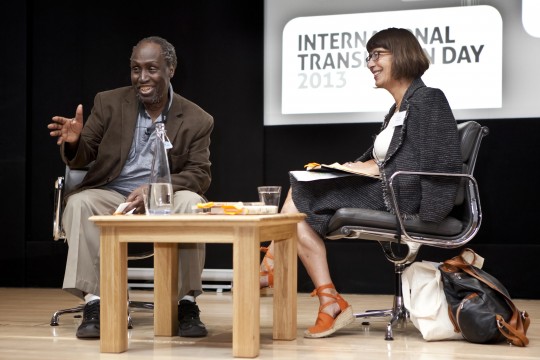
Asymptote Editor-at-Large Nashwa Gowanlock reports from ITD 2013
If there’s any sure sign of dedication to a cause, then it’s a group of UK-based translators voluntarily heading towards a day-long symposium indoors on an unseasonably warm late-September day in London. As I exited the labyrinth that is Kings Cross station to be blinded by the unexpected sunshine and made my way to the British Library, I noticed the clock on the tower of the St Pancras station. I was running late. The lack of tell-tale signs of a nearby conference about to start—no small clusters of strangers wearing identical badges, cradling coffees or cigarettes while studiously ignoring each other—confirmed it: I was late for the opening session. READ MORE…


